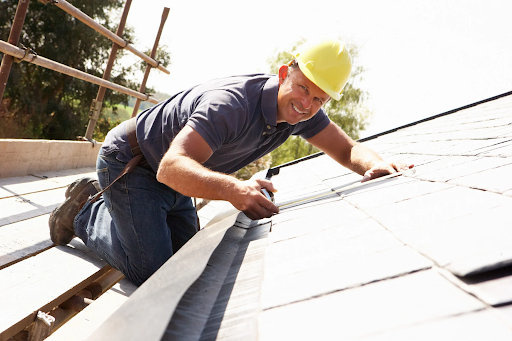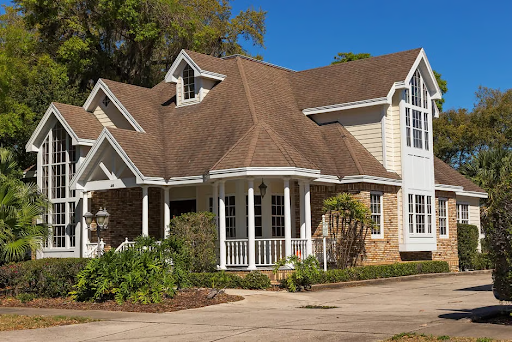
Your roof is one of the most critical components of your home, protecting you and your belongings from the elements. Despite its importance, many homeowners overlook regular roof maintenance, assuming that it can wait until visible problems arise. However, neglecting roof inspections can lead to undetected issues that become costly repairs over time. Regular roof inspections provide an essential safeguard, ensuring the longevity and performance of your roof while saving you money in the long run.
Identifying Hidden Issues Before They Worsen
One of the primary benefits of regular roof inspections is the ability to identify hidden issues that may not be immediately apparent. While some roofing problems, such as missing shingles or leaks, are easy to spot, others can develop silently beneath the surface. Issues like water damage, structural weaknesses, or deteriorating flashing often remain undetected until they cause significant harm.
Professional roof inspections provide a thorough assessment of your roof’s condition. Trained inspectors know where to look and can detect subtle signs of wear and tear. For example, they can identify small cracks in shingles that could allow water infiltration or spot areas where insulation may be compromised. Catching these problems early prevents them from escalating into more extensive and expensive repairs.
Extending the Lifespan of Your Roof
A well-maintained roof can last for decades, but neglecting regular inspections can significantly shorten its lifespan. Weather, UV exposure, and debris accumulation all take a toll on roofing materials over time. Without periodic check-ups, minor damage can compound, leading to premature aging and the need for early replacement.
Routine inspections enable you to address wear and tear proactively. Simple maintenance tasks, such as resealing flashing or cleaning gutters, can make a substantial difference in your roof’s longevity. By extending the life of your roof, you avoid the high cost and inconvenience of a full replacement.
And, inspecting your roof regularly allows you to plan for future maintenance or upgrades. Knowing when to replace shingles, improve insulation, or invest in energy-efficient materials ensures your roof remains in top condition for years to come.
Preventing Water Damage and Mold Growth
Water damage is one of the most common and costly problems associated with roofing issues. A small, undetected leak can lead to significant structural damage, compromising not only your roof but also your walls, ceilings, and foundation. Water intrusion also creates an ideal environment for mold and mildew growth, posing health risks to your household.
Regular inspections help prevent water damage by identifying and repairing vulnerabilities before they allow moisture into your home. Professionals can assess areas where water tends to pool, check for damaged flashing around vents and chimneys, and ensure that gutters and downspouts are functioning correctly.
Addressing water-related issues promptly reduces the risk of costly repairs and protects your home’s interior. It also minimizes the likelihood of mold remediation, which can be both expensive and disruptive.
Saving Money on Emergency Repairs
Roofing emergencies, such as leaks during heavy rainstorms or structural failures due to wind damage, often come with hefty repair bills. These unexpected costs can strain your budget and lead to stressful situations. Regular inspections help you avoid such emergencies by addressing potential problems before they worsen.
For instance, inspecting your roof before the onset of harsh weather seasons allows you to fortify weak spots and ensure your home is prepared for the elements. Repairing a small issue, like a loose shingle or minor flashing damage, is far more affordable than addressing a large-scale repair caused by prolonged exposure to rain or snow.
By investing in preventive maintenance through regular inspections, you reduce the likelihood of needing emergency services, saving both time and money in the long run.
Enhancing Energy Efficiency and Reducing Utility Bills
Your roof plays a vital role in regulating your home’s temperature and energy efficiency. Damage to the roof or insulation can lead to air leaks, causing your heating and cooling systems to work harder to maintain a comfortable indoor environment. This inefficiency often results in higher utility bills.
Regular inspections help identify areas where your roof may be compromising energy efficiency. Inspectors can assess insulation quality, ventilation systems, and potential gaps or cracks that need sealing. Addressing these issues promptly improves your home’s energy performance, reducing utility costs and contributing to a more sustainable lifestyle.
Energy-efficient upgrades, such as reflective roofing materials or improved insulation, can also be planned during inspections. These enhancements not only lower energy expenses but also increase the overall value of your home.
Meeting Insurance and Warranty Requirements
Many homeowners’ insurance policies and roof warranties require regular maintenance to remain valid. Neglecting inspections could void your coverage, leaving you responsible for the full cost of repairs or replacement. Regular inspections provide documentation of your roof’s condition, demonstrating compliance with insurance or warranty requirements.
If you experience roof damage due to a storm or other unforeseen event, having a record of recent inspections can streamline the claims process. It provides evidence that your roof was well-maintained and that the damage was not due to neglect. This proactive approach ensures you receive the full benefits of your insurance coverage when needed.
Finding Reliable Professionals for Roof Inspections
While some homeowners may attempt to inspect their roofs themselves, hiring a professional is essential for a thorough and accurate assessment. Climbing onto a roof can be dangerous without proper training and equipment, and untrained eyes may miss subtle signs of damage.
When selecting a professional for roof inspections, look for a company with a strong reputation and experience in your local area. Local roofers are familiar with the specific challenges posed by regional weather conditions and can tailor their services accordingly. To ensure you receive quality care, take the time to find reliable roofers who prioritize customer satisfaction and have a proven track record of excellence. Working with professionals also provides peace of mind, knowing your roof is in expert hands. They can recommend appropriate repairs, provide cost estimates, and offer advice on long-term maintenance strategies to protect your investment.
Establishing a Regular Inspection Schedule
To reap the full benefits of roof inspections, consistency is key. Aim to schedule inspections at least twice a year—once in the spring and once in the fall. These seasons are ideal for identifying damage caused by winter storms or summer heat and preparing your roof for the next round of weather challenges.
In addition to biannual inspections, have your roof assessed after major weather events, such as hailstorms or hurricanes. Prompt evaluations allow you to address storm damage quickly, preventing further deterioration.

Regular roof inspections are an invaluable tool for homeowners, offering protection, peace of mind, and long-term savings. By identifying and addressing issues early, you prevent costly repairs, extend your roof’s lifespan, and maintain the integrity of your home. Investing in professional inspections is a proactive step that ensures your roof continues to provide reliable protection for years to come.



(0) comments
Welcome to the discussion.
Log In
Keep it Clean. Please avoid obscene, vulgar, lewd, racist or sexually-oriented language.
PLEASE TURN OFF YOUR CAPS LOCK.
Don't Threaten. Threats of harming another person will not be tolerated.
Be Truthful. Don't knowingly lie about anyone or anything.
Be Nice. No racism, sexism or any sort of -ism that is degrading to another person.
Be Proactive. Use the 'Report' link on each comment to let us know of abusive posts.
Share with Us. We'd love to hear eyewitness accounts, the history behind an article.